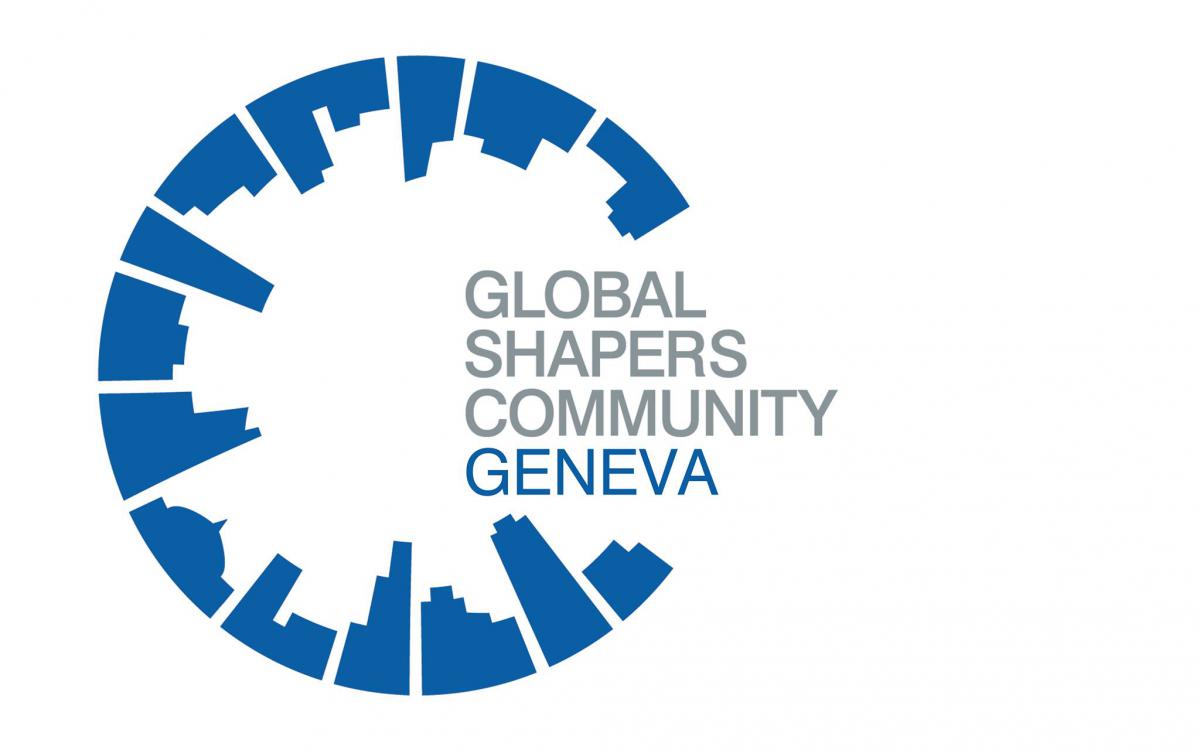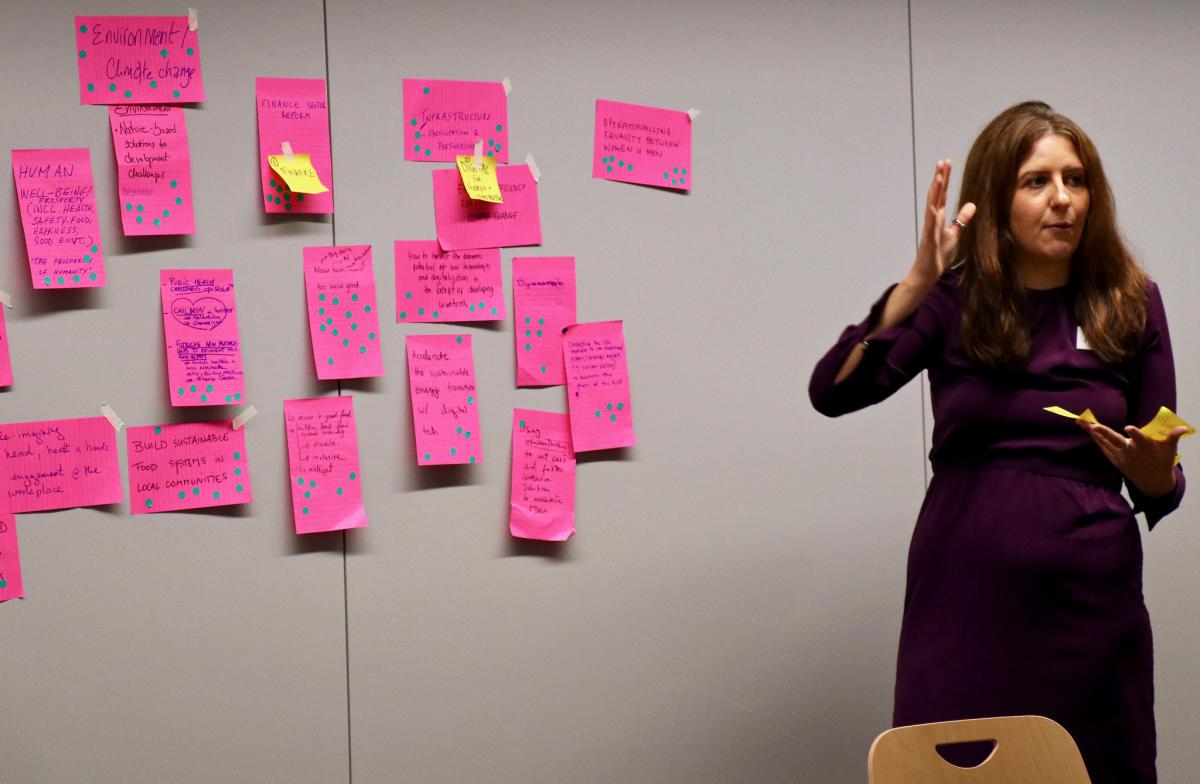Developing Future Leaders: Meet Kali Taylor, a Global Shaper
We check in with Kali Taylor, who has just been named a "Global Shaper," to learn more about the Global Shapers program and what she hopes it will bring for her, both personally and professionally.
Kali Taylor, the lead on the Geneva 2030 Ecosystem initiative under IISD's Sustainable Development Goals (SDG) Knowledge Program, was recently named a "Global Shaper."
This program is led by young leaders between 20 and 30 years old who want to develop their leadership potential toward serving society.
Through her work, Kali promotes collaboration and initiatives for Geneva-based actors focused on SDG implementation. IISD has partnered closely with the UN Office at Geneva SDG Lab to fulfill this vision and, as such, Kali is seconded part-time to the UN, representing non-governmental organizations' (NGOs') viewpoints and providing expertise on systems change and innovation best practice.
We checked in with Kali to hear more about Global Shapers and what she hopes it will bring for her, both personally and professionally.
Tell us about Global Shapers. What is it all about?
The Global Shapers Community is a network of young people driving dialogue, action and change. Born out of the World Economic Forum, the Community is a network of inspiring young people under the age of 30 working together to address local, regional and global challenges. With more than 6,000 members, the Global Shapers Community spans 378 city-based hubs in 160 countries.

What work will you be involved in through this?
The Global Shapers aim to make a difference in their communities. In Geneva, our Hub has three initiatives: one focuses on refurbishing electronics and donating them to local organizations who need them; one makes financial literacy simple for young people; and one promotes investment in childcare facilities by large companies to enable female leadership and career development.
"The Shapers community is incredibly diverse – comprised of people working on everything from traditional finance to artificial intelligence to humanitarian response."
I will be working on the "Child care for Careers" project. In Switzerland, only 15 per cent of mothers work full-time, and this is largely attributable to very high child care costs. We have developed all the material needed to fully understand the benefits of investing in childcare for employee retention and satisfaction and now are working with large companies to encourage implementation of a crèche (nursery facility) at their workplace. You can learn more about the Geneva Hub projects here.
What do you hope to gain from it, personally and professionally?
I have been in Geneva for 18 months now, working with IISD. It is my hope that through the Shapers I can give back to this city that is my new home. In addition, I look forward to expanding my network of interesting young change-makers and making new friends!

What do you hope your involvement in Global Shapers will bring to IISD?
The work I do at IISD allows me to meet and partner with so many people/organizations working on the Sustainable Development Goals here in Geneva, but it is somewhat confined to the traditional development actors. The Shapers community is incredibly diverse – comprised of people working on everything from traditional finance to artificial intelligence to humanitarian response. It is an incredible opportunity to expand my perspective and bring new ideas into sustainable development challenges.
You might also be interested in
What Drives Investment Policy-makers in Developing Countries to Use Tax Incentives?
The article explores the reasons behind the use of tax incentives in developing countries to attract investment, examining the pressures, challenges, and alternative strategies that exist.
What Is the NAP Assessment at COP 29, and Why Does It Matter?
At the 29th UN Climate Change Conference (COP 29) in Baku, countries will assess their progress in formulating and implementing their National Adaptation Plans. IISD’s adaptation experts Orville Grey and Jeffrey Qi explain what that means, and what’s at stake.
How to Track Adaptation Progress: Key questions for the UAE-Belém work programme at COP 29
UAE-Belem work program at COP 29: Emilie Beauchamp explains the complexity behind these talks and unpacks seven key questions that negotiating countries should address along the way.
COP 29 Must Deliver on Last Year’s Historic Energy Transition Pact
At COP 29 in Baku, countries must build on what was achieved at COP 28 and clarify what tripling renewables and transitioning away from fossil fuels means in practice.
